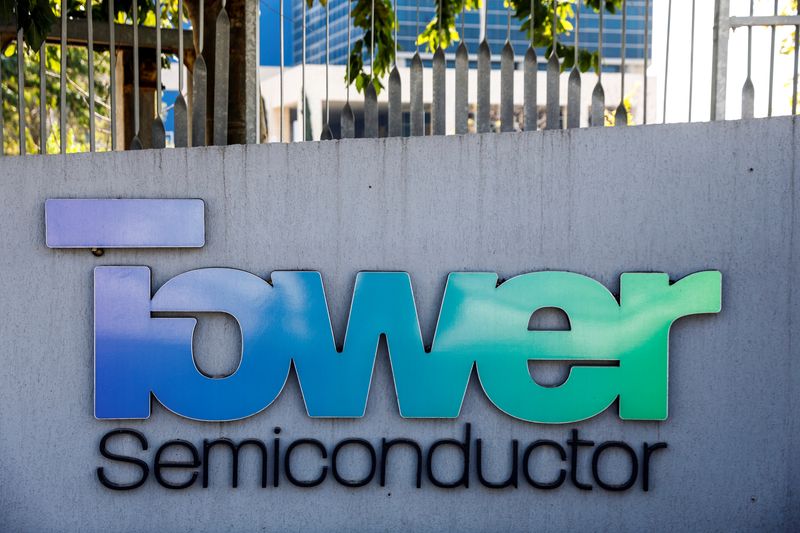(Reuters) -Israel-based contract chipmaker Tower Semiconductor (NASDAQ:TSEM) posted a decline in its fourth-quarter revenue on Wednesday, hurt by uncertainty in demand from the automotive sector.
The company said the Israel-Hamas war was not impacting its operations or its supply chain.
Its Nasdaq-listed shares were up 8.1% at $30.95 in morning trade.
Various chipmakers in their latest quarterly earnings have signaled the beginning of a supply glut in the automotive sector, that is likely to weigh on demand for companies such as Tower Semiconductor.
European chipmaker STMicroelectronics also forecast a more than 15% drop in its first-quarter revenue in January, due to softer automotive demand.
Tower Semiconductor, which makes analog and mixed-signal chips used mainly in automotives, reported revenue of $351.7 million for the three months ended Dec. 31, down more than 12% year-on-year.
The company will phase out certain lower margin products, it said, without providing further details.
It said both its facilities in Hokuriku, Japan suffered tools damage, some "work in progress" was hit and operations temporarily halted in the aftermath of an earthquake on Jan. 1. Both factories have since returned to full operations, it added.
Tower forecast its first-quarter revenue at $325 million, with an upward or downward range of 5%.
It posted adjusted profit of 55 cents per share for the fourth quarter. Four analysts polled by LSEG pegged earnings at 52 cents per share.
CEO Russell Ellwanger said despite the earthquake in Japan during the quarter, Tower still managed to beat profit and revenue estimates although they would have been higher if not for the natural disaster. He also said in 2024, the company expects notable quarter over quarter growth throughout the year.

During 2023, Intel (NASDAQ:INTC) terminated its planned $5.4 billon acquisition of Tower. But Ellwanger said it was able to sign a deal for high capacity at an Intel-owned factory in New Mexico to produce 65 nanometer chip flows for power management.
Customer prototypes will be available in the second half of 2024, he told Reuters. "We were able to build off (the Intel termination) very well," Ellwanger said. But "if the deal had happened, I think there's other things that we could have done that otherwise we're not doing now."